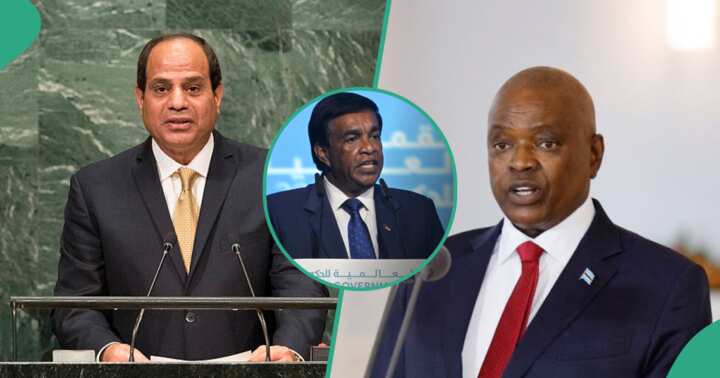
The latest list of Africa’s wealthiest countries includes smaller nations such as Mauritius and Libya.
The ranking is based on the listed countries’ purchasing power parity (PPP), which takes into account inflation and local cost variations and provides a more accurate comparison of the average standard of living in those nations.
GDP per capita plays an integral part in assessing Africa’s wealthiest countries, which measures the value of all goods and services produced per citizen.
According to reports, the International Monetary Fund (IMF) released the list of 10 wealthiest African countries by GDP per capita (PPP) as of February 2024.
Mauritius: Mauritius occupies the top spot on the IMF’s list as Africa’s most prosperous country in 2024, with a GDP-PPP of $31,157. Mauritius’ diverse economy has successfully moved beyond its traditional sectors, such as sugar and textiles.
Libya: Despite its political and economic challenges in recent times, the Northern African country of Libya is on the list with a GDP-PPP of $26.527. Libya’s wealth comes primarily from its vast oil resources, and efforts to stabilise its economy have become critical in maintaining its position among Africa’s wealthiest nations.
Botswana: With a GDP-PPP of $20.311, Botswana is known for its stable economic growth and successful diversification strategies. Botswana has effectively managed its diamond resources and invested in tourism and agriculture, contributing to its financial strength.
Gabon: In fourth place is the West African country of Gabon, with a GDP-PPP per capita of $19,865, driven by its abundant natural resources, including oil and minerals. The country’s government emphasizes sustainable development and economic diversification, vital in maintaining its status as one of Africa’s wealthiest nations.
Egypt:The North African giant is in fifth place on the list with a GDP-PPP per capita of $17,786. Egypt’s economy is diverse, with critical sectors including tourism, agriculture, and manufacturing.
Equatorial Guinea: With $17,237 as its GDP-PPP, Equatorial Guinea depends heavily on its vast oil wealth to drive its economic development. Oil still plays a dominant part in the country’s economy, but it is trying to diversify its economy and invest in sectors like agriculture.
South Africa: Africa’s second-largest economy ranks seventh on the IMF’s list with a GDP-PPP per capita of $16,625.
The country faces challenges such as inequality and unemployment. South Africa’s diverse economy encompasses mining, manufacturing, and services, making it an essential player in the region.
Algeria: The North African country has a GDP-PPP per capita of $14,227. It relies heavily on hydrocarbons, with ongoing efforts to diversify into other renewable energy and manufacturing sectors.
Tunisia: Tunisia has a GDP-PPP per capita of $13,695 and is a strategic economic player in North Africa. Tunisia focuses on economic reforms, tourism, and manufacturing, contributing to its ranking among Africa’s wealthiest countries.
Morocco: Morocco’s GDP-PPP per capita is put at $10,926. The country has built a diverse economy with strengths in agriculture, tourism, and manufacturing, making it an essential player in Africa. A recent report by Bloomberg says South Africa will briefly overtake Nigeria and Egypt as Africa’s largest economy in 2024.
The report says IMF stated this in its World Economic Outlook, which says it sees the rainbow nation hitting $401 billion in Gross Domestic Product (GDP) based on current prices in 2024, compared with Nigeria’s $395 billion GDP and Egypt’s $358 billion.
Legit.ng also reported that the IMF said about 10 African countries still have manageable debts compared to their GDP. The report ranked Nigeria among the countries in Africa with low debt compared to its GDP despite calls by Nigerians for the government to tame its appetite for borrowing. Nigeria’s debt profile recently hit N87 trillion, with the federal government saying it would convert CBN’s Ways and Means Advances to loans.
Source: Legit







